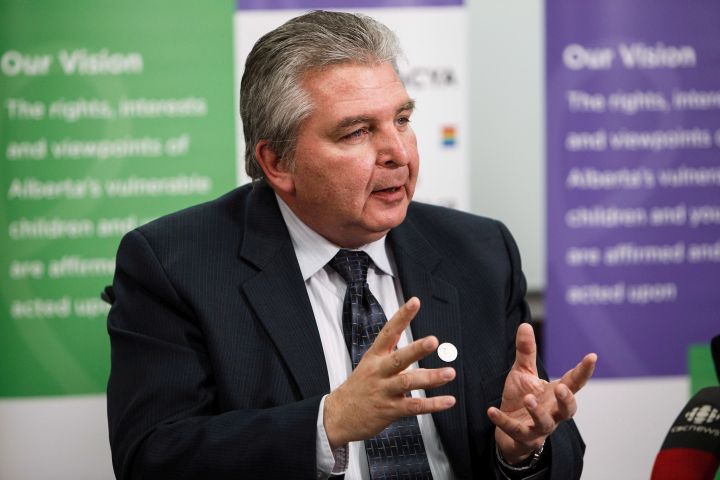The Alberta government should do more to understand the causes and prevent youth suicide, the province’s child advocate said as he released his latest report Tuesday.

“It is important the government of Alberta continue to invest in research on suicide, specifically focusing on suicidal behaviour,” Del Graff said in a statement after releasing the second mandatory review since a recent legislative change expanded his mandate.
“As a society we must do more to stop this crisis.”
READ MORE: Advocates call for national youth suicide strategy: ‘Our children will continue to die’
Watch below: (From Sept. 10, 2019) On World Suicide Prevention Day, Kids Help Phone highlights how it can help youth dealing with suicidal thoughts.

Changes to the Child and Youth Advocate Act last year widened the range of deaths the advocate investigates to include children in need of intervention at the time of their death or within two years of their death. He must also release the reports twice a year, in March and September.
Graff’s recent review — which investigated the deaths of eight children between Oct. 1, 2018 and March 31, 2019 — said caseworkers missed opportunities with youths who died by suicide or drug overdose while they were in care.
Three of the deaths were suicides and three were from medical complications. One died from an overdose and one child died accidentally.
READ MORE: Alberta child advocate releases info about 12 youth opioid-linked deaths
Watch below: (From June 26, 2018) Young people who are addicted to opioids are not getting the help they need, and many are dying. That’s according to the Child and Youth Advocate who investigated 12 deaths. As Kendra Slugoski reports, he’s calling on the province to do more.

In the case of a 17-year-old boy, Graff said, five previous recommendations his office made could have helped him.
“It is concerning that young people with complex needs continue to experience fragmented services and supports when multiple systems are involved,” he said in the report.
“These recommendations must be implemented to improve the outcomes for young people like Nick, who are receiving services through multiple ministries.”
Graff also noted that workers were aware that a 15-year-old boy, who died of a drug overdose, had threatened to harm himself in the past. He didn’t get help until a year before his death.
In many cases, the report said children had to be moved far from their communities to have access to services they needed. Five of them were Indigenous.
“Culture and healthy community connections are critical components of well-being for Indigenous young people,” said the report.
Although more tools have been added to deal with children with trauma, Graff recommended the government evaluate how the measures are being integrated into day-to-day casework.
“I am… alarmed by the number of young people who continue to die by suicide,” Graff said. “Youth suicide continues to be a disturbing trend in this country, and it is the second-leading cause of death for young people.”
The review did find that Children’s Services and health professionals worked together to make sure the needs of children in care with severe medical problems were met.
Child intervention workers became involved in a case of a boy, who was born with a heart defect and required surgery and a blood transfusion. His parents were Jehovah’s Witnesses and would not agree to a blood transfusion.
Graff said the case was well managed, despite the infant’s death after treatment.
However, he found many frontline staff were not aware of the rules dealing with guardians who do not agree to live-saving treatment for their children. He recommended a plan to raise awareness among social workers and hospital staff.



Comments